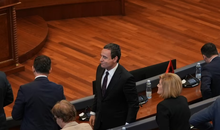
 Flash News
Flash News
He breaks arrest, steals a car and escapes like in a movie, the serial thief from Tirana is caught!
Name/ She deceived clients and took their money, the lawyer is wanted
Criminal group busted, trafficking dogs from Spain to Finland, the 'heads' of the group were Albanians
She escaped drowning in Durres, the 31-year-old English woman speaks: We capsized instantly, my friend was trapped under the vehicle
Due to lack of lawyers/ The hearing for the 'Golden Bullet' is postponed again
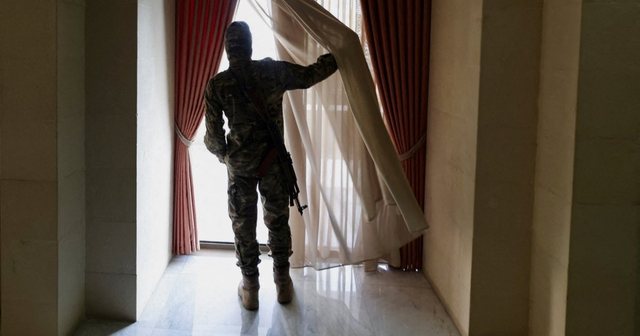
The fall of Bashar al-Assad's regime in Syria is very good news for the people of Syria, who have suffered for a long time, says in an interview with Radio Free Europe/Radio Liberty, Adrian Shtuni, a foreign policy and security expert based in Washington and a fellow at the International Counter-Terrorism Center in The Hague.
However, he adds that this moment is also a somewhat delicate aspect of the security risk because "we are in a transition phase from a government that has been bloody to the arrival of groups that are unknown in terms of governance and that have a problematic background in terms of security."
"There are some groups that still have names that are known as terrorist groups," he says.
The Assad regime in Syria fell on December 8, when the Hayat Tahrir al-Sham (HTS) organization, declared a terrorist organization by the US and its allies, took power.
Shtuni, who is the author of the publication "Foreign Fighters and Domestic Jihadists from the Western Balkans: Trends and Implications" by the Center for Combating Terrorism at West Point, adds that there are several dozen Albanians who are active in the recent battles in Syria - "fighters who are integrated within the component called the Albanian Community."
Radio Free Europe: Mr. Shtuni, I wanted to talk a little about the recent situation in Syria, the new battles there, and the whole situation that seems to have changed radically in recent days.
Adrian Shtuni: Yes, what has happened is that the regime of Bashar al-Assad has fallen, which is very good news for the people of Syria. It is a people who have suffered for a very long time under a bloody dictatorship of the Assad family, so somewhere fifty or so, between (his) father and Assad and have experienced about fourteen years of civil war, in which over six hundred thousand people have been killed.
This is good news, that Bashar al-Assad has escaped, he has fled and now it is a different situation. It is also good news that what happened and the fall of the regime show that Russia has been weakened along with Iran and their influence and the intervention of groups like Hezbollah in Lebanon, which were artificially keeping the Assad regime that was oppressing the people of Syria afloat.
And, at this moment, in addition to these positive things, there is also the, let's say, slightly delicate aspect of the security risk, because we are in a transition phase from a government that has been bloodthirsty in the arrival of groups that are unknown in terms of governance and that have a problematic background in terms of security.
There are some groups that still have names that are known as terrorist groups. But we will see what this transition will bring and this is the most important part I think of the discussion, but we should do it later, because at this moment it is not known what will happen with this transition.
Radio Free Europe/Radio Liberty: You mentioned the groups that have become part of the battle for the liberation of Syria. Who exactly are these groups and what has happened?
Adrian Shtuni: There are several components here and the main group is called Hayat Tahrir Al-sham. That is, it is a coalition, which includes several other groups, but the main one is HTS and the main leader is Abu Muhammad al-Jolani, who has this as a war name in fact, whose real name is Ahmed al-Sharaa.
He is a 42-year-old man who was born in Saudi Arabia, but is Syrian. And then he returned, integrated, went and fought in Iraq with Al-Qaeda and was part of it. He was later arrested in Iraq by American forces and then later integrated into the components of the Islamic State (IS) in Iraq and was sent to Syria, to start there this - let's say - Islamist confrontation and resistance, which in Syria was initially known as Jahbat Al-Nusra.
These names are well-known, I'm talking about Al-Qaeda, I'm talking about the Islamic State in Iraq in the beginning, Al-Nusra... They are all organizations known for terrorist activities and this person who is the leader, has currently been the main element, the main person who led the jihadist initiatives in Syria and then went through several different transformations.
In 2016, he officially broke away from Al-Qaeda, because he didn't want to have this connection with a terrorist organization, and gradually focused more on the revolutionary interests of liberating Syria. He was freed to some extent, he broke away to some extent, from the global jihadist component that Al-Qaeda or the Islamic State organization has.
And, at this moment, we are seeing an even greater transformation by Ahmed al-Sharaa, who has started to stop using his jihadist name, which I said was Abu Muhammad al-Jolani. He is trying to portray himself as a force, as someone who has a transformative force and is focused on governing Syria - a government that, it seems, through the words that he is trying to communicate, will be inclusive and will not pose a threat to religious or ethnic minorities in Syria.
This is something that would be welcomed if it were real, but it remains to be seen whether the words will be followed by facts.
Radio Free Europe: Before we move on to a more local context for the Balkans, you mentioned that this leader has undergone or at least proclaimed transformations in his organization and personality. So, how is he viewed internationally as a figure? How are he and HTS currently viewed in the world's powerful countries?
Adrian Shtuni: The organization and he, personally, are listed as terrorist components, so the HTS organization is known as an organization with links to Al-Qaeda...
Radio Free Europe: Can this be changed?
Adrian Shtuni: Of course it can be changed, it can be changed, but this will depend not on the words that are said, but on the deeds. However, it is not only recognized as a terrorist organization in the United States, but also by the countries of the European Union, by England and so on.
And for Jolan, there is a ten million dollar reward that has been put up by the United States for information that would lead to his capture.
The reaction from US President Joe Biden has been restrained. He has welcomed Assad's departure. I said it again, he is a bloody dictator who has killed and slaughtered Syria for decades.
There are seven million Syrians who have been displaced and refugees, who are now trying to return to their homes, and I hope that they will have a future that will be more peaceful and not with division and killing and the rule of terrorist organizations.
I wouldn't want to see, let's say, a Taliban system coming to Syria. Let's hope it doesn't!
Radio Free Europe: How many fighters of Albanian or Albanian-speaking nationality are considered to be active or have been active in the recent battles in Syria? And in which organizations?
Adrian Shtuni: There are several dozen who are active - we are mainly talking about fighters who are integrated within the component called the Alban Community.
It is a group that is by nature an Islamist jihadist group. It is a well-structured group that operates within the HTS coalition, that is, the Jolan coalition that we mentioned earlier. It is a group with an Albanian or ethnic Albanian command structure and the people who are members of this group come mainly from Kosovo, from North Macedonia, but also from other Albanian territories in the Balkans, and from the diaspora.
That is, the leader of the Albanian group there, the Albanian community, is a 48-year-old from Skopje who goes by the name Abu Qatada al-Albani. His real name is Abdul Jashari. He is also a listed terrorist and has held senior advisory positions with the HTS commander, Al-Jolan.
This group has been active in Syria since 2012, although not officially under this name as the Alban Jamaat, but its components, that is, the people who formed this group, later used this as the name Alban Jamaat.
Radio Free Europe: How would you say the division of these individuals and organizations, to which they have decided to belong, whether it is the Islamic State or in this case HTS, was there a division into groups or organizations, was there a transfer? How did this proceed after 2012?
Adrian Shtuni: This is a very good question, but it takes hours to explain the details, because it is not something that happened overnight and it is not something that is already over.
So let's be clear, when I say several dozen, I'm talking only about the fighters, but there are also family members, there are women, there are children, there are people who are not of fighting age who are still there. And, if we're going to talk about all of them, then we move to a number much larger than several dozen.
Albanian groups have been mainly divided into two parts: One was under the Islamic State and the other was part of Al-Nusra… and then later, they are now part of the group called HTS, which is the same group but has transformed over time. This is because it sought to distance itself from known terrorist organizations and has now transformed or seeks to transform into a governing organization within Syria, which does not seem to have official intentions to export jihadism globally.
This is important to understand.
As for the Islamic State, it is a terrorist organization that has global dimensions and is trying to create an Islamic state that knows no borders and that invites and embraces all Muslims... And it has been their ambition to create caliphates, which is another thing.
Currently, those who were affiliated with the Islamic State, the vast majority of them have either returned or been killed, and some are still being held in Kurdish prisons in northeastern Syria.
Meanwhile, those who are affiliated with HTS, as I mentioned, are several dozen and have been active even in the last offensive that we saw and which culminated in the fall of Bashar al-Assad's regime. They have been active in the cities of Hama, in Homs, they were in Damascus two days ago, releasing photos of themselves being there.
And, let's be clear about one thing, there hasn't been much fighting these days.
The Syrian army soldiers have laid down their weapons and left, there have been reactions or let's say isolated fighting, but very minimal in certain areas, but for the most part there has been no resistance. They have surrendered and the army has surrendered and disbanded. So it has simply been a march by HTS towards the capitals of these major cities, which they have already taken control of.
Radio Free Europe: What was the importance of (the Albanian group) within HTS? Also, within the Telegram groups we are seeing another group that is calling itself Tactical Albanian, which is considered a more specialized group in certain weapons that is even training other fighters there. Are there also small teams or smaller specialized units of Albanians there that constitute any important units within HTS?
Adrian Shtuni: Yes, I mentioned the main person, Abdul Jashari, who was very close to Jolan, the leader of HTS, and was one of his main advisors.
He is a person with an important military figure within this organization, his word is heard, and he has consistently had the ability to attract people and have sufficient funding to keep the group active.
And, this group is divided into several subgroups, so the Alban Community is divided into several groups that are specialized: one for minelaying, the other is a sniper group and then we also have this training group called Albanian Tactical. But, they are within the same large group, which is the Alban Community.
Radio Free Europe: Do you think there may have been recent recruitment from Western Balkan countries, especially through these social networks you are mentioning, including Telegram?
Adrian Shtuni: It is very difficult to measure real-time recruitment or their ability to attract individuals at the time we are speaking. What I find is that their engagement in terms of media, communication with the general public has been constant.
The quality of their communication has been increasing, which shows that their seriousness in terms of the ambition they have to communicate their activities, but also to attract others, is at a high level.
Mostly those who are active today are people who traveled there somewhere between 2011 and 2014 or 2015, mainly because later it was very difficult to move.
\Radio Free Europe: Now that the war is considered to be over, what is expected to happen to these foreign fighters? Is it likely that some of them could return to their countries of origin? Do you think they will aim to have positions in the new government in Syria? How do you see the role of these Albanian foreign fighters transforming in this case?
Adrian Shtuni: This is a very good question. First, I am not convinced that the civil war is over. I hope it is, but if we look at it historically, these kinds of situations when there is a vacuum of governance are followed by other wars and confrontations, civil wars or other chapters of civil war, but in a different way, or even clashes of subgroups within the main group, which now seems to have taken power.
So, there could be internal power struggles and there could be ongoing war and other bloodshed.
We'll have to see what happens, it's too early to draw conclusions.
But, it may happen that these types of foreign fighters will be integrated within the structures of the future government.
The person, the main leader, Abdul Jashari, was also the person who commanded an HTS military academy before, and so we will see what will happen if they will further integrate into the government or if they will look for a way to leave.
But, I think there will mainly be a tendency to integrate them even more within the structures of HTS and the government within Syria rather than expelling them, because they are parts that played a role in the victory of HTS, so they owe them a debt, let's say.
HTS (is indebted to) these individuals who have risked their lives to bring about this change that has occurred.
Radio Free Europe: And from them (the fighters), do you expect any interest in returning?
Adrian Shtuni: I'm not sure they would want to return, as these people are focused, have a jihadist background, have risked their lives for their ideological goals, which they have not hidden.
They seek governance guided by religious principles articulated in the Quran and want Sharia law to govern everything in the society they live in.
I don't believe they have the ambition to experience something like that in the Balkans, so as long as they are in Syria under the leadership of a new government, which has an Islamist background and there is a person known as Jolani who has had these kinds of ambitions. They, I think, can continue to stay there.
But, this will also depend on the trajectory that Jolani will take and lead the government in Syria, because if he seeks to be accepted by other countries, by the international community, he must turn the transformation he is talking about into reality and show that there is sufficient tolerance for all minorities - whether ethnic or religious - living in Syria and not to oppress them and impose a law on them, which would not work for them, because they are not interested in being guided by Sharia law. This remains to be seen what will happen./ REL
Latest news

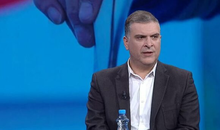
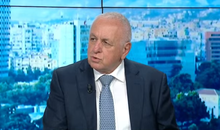
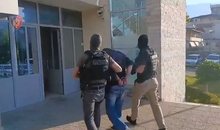
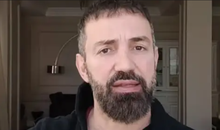

EUROPOL: Minors increasingly targeted by terrorist propaganda
2025-06-03 15:04:56
Kindergarten in Gramsh reopens where children were poisoned with salmonella
2025-06-03 14:59:16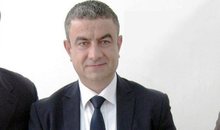

OECD: Global economy heading for weakest growth since Covid-19
2025-06-03 14:35:26
A farm in Postribë, Shkodra, is quarantined, small livestock infected,
2025-06-03 14:21:50
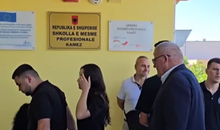
74-year-old from Kamza, the oldest high school graduate in the English exam
2025-06-03 13:59:30
The average salary in Kosovo reached 639 euros in 2024
2025-06-03 13:49:00
Osmani invites parties to consult on the date of local elections
2025-06-03 13:41:33
Name/ She deceived clients and took their money, the lawyer is wanted
2025-06-03 13:25:24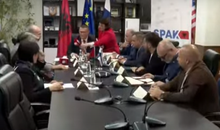

He hit and killed a 59-year-old man and fled, the young man is wanted
2025-06-03 12:58:29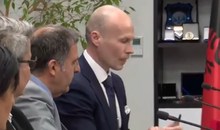
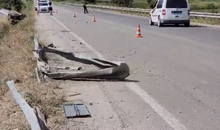
Two cars collide in Bulqiza, drivers injured
2025-06-03 12:34:46
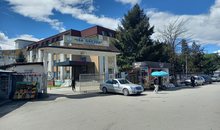

15 people arrested for cyber fraud and misuse of bank cards in Gjilan
2025-06-03 12:02:41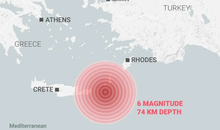
Greece and Turkey hit by earthquake
2025-06-03 11:49:08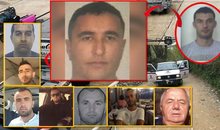
Due to lack of lawyers/ The hearing for the 'Golden Bullet' is postponed again
2025-06-03 11:36:52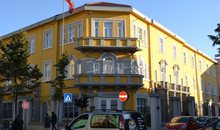

More than half of foreigners in Serbia are Russians
2025-06-03 11:15:59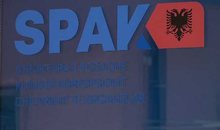

Scandal repeats, English exam thesis leaked
2025-06-03 10:46:54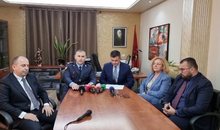


They printed fake logos of well-known brands, 4 arrested, two others wanted
2025-06-03 09:42:58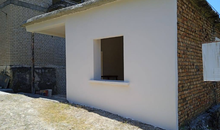
A verbal agreement by Rama prompted the contested interventions in Spaç
2025-06-03 09:23:32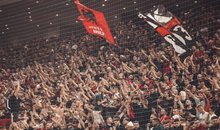


Horoscope, what do the stars have in store for you today?
2025-06-03 08:34:30

Temperatures up to 31 degrees Celsius, weather forecast for this Tuesday
2025-06-03 08:09:06
Morning Post/ In 2 lines: What mattered yesterday in Albania
2025-06-03 07:51:10


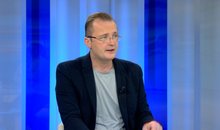
Convinced DP candidate: Tirana district is opening, MPs' order changes
2025-06-02 21:42:53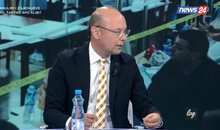

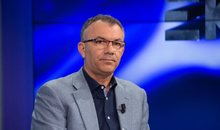
Cara: At the head of the state is a party that was not voted for by Albanians
2025-06-02 21:16:53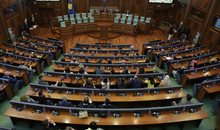
The constitution of the Kosovo Assembly fails for the 25th time
2025-06-02 21:10:46
"130 thousand unused ballots", CEC responds to the DP
2025-06-02 20:51:02
Italian professor who insulted Giorgia Meloni's daughter attempts suicide
2025-06-02 20:25:21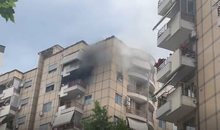
Fire breaks out in a building in Astir
2025-06-02 20:22:46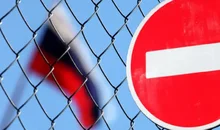
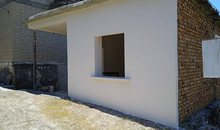


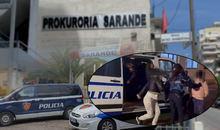
Two women threaten the Saranda prosecutor in her office
2025-06-02 19:09:20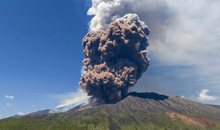
Etna wakes up again, the most active volcano in Europe erupts
2025-06-02 19:00:36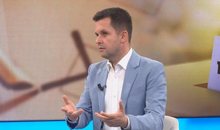


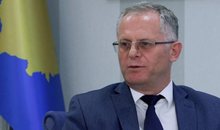
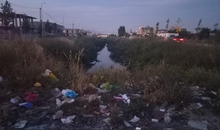
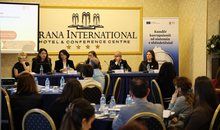
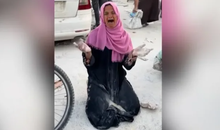
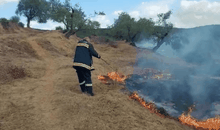
Fire reactivates in Darëzeza forest, firefighting efforts impossible
2025-06-02 17:28:29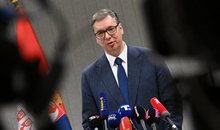
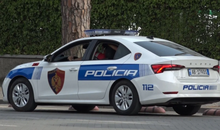
Cultivating cannabis on a plot, 35-year-old arrested in Mirdita
2025-06-02 16:59:27

Switzerland/ Albanian caught with drugs worth over 1 million euros
2025-06-02 16:50:38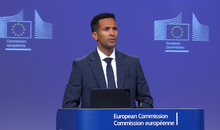
Kosovo-Serbia dialogue meetings resume in Brussels
2025-06-02 16:32:44
The VPN Era in Albania: How the TikTok Ban is "Failing", Video Views Increase
2025-06-02 16:26:36
Mahmut Orhan brings a unique experience with Curious X
2025-06-02 16:19:55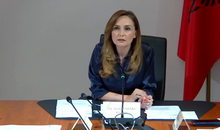

Businesses "forgot" to pay for elections, liabilities reached 4.7 billion lek
2025-06-02 15:50:27
Photo/ Caught with cocaine, Albanian arrested in Britain
2025-06-02 15:31:12
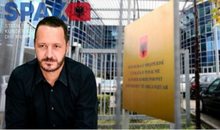

He violently opposed police officers, 39-year-old arrested in Vlora
2025-06-02 15:04:28

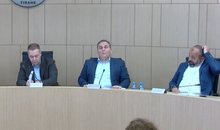
DP demands Rusmal's expulsion from KAS, Logu: It is biased, Begaj's advisor
2025-06-02 14:37:24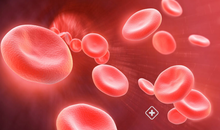
Anemia is increasing in the population
2025-06-02 14:32:18

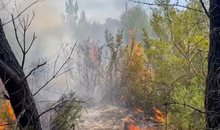
Fires in Darëzezë reactivate, wind spreads flames
2025-06-02 13:57:33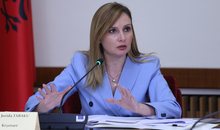

Traffic jams and over 14 thousand fines, Traffic Police take stock of the week
2025-06-02 13:40:51
Eurosceptic Nawrocki wins presidential election in Poland
2025-06-02 13:33:27

Hysaj: Against Serbia with calm and courage, this match is for national pride
2025-06-02 13:14:41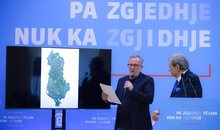
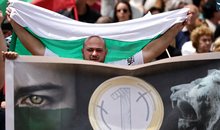
Bulgaria defies chaos and continues on path to euro
2025-06-02 12:53:28
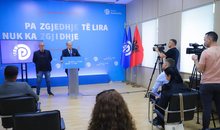

Elected MP, Tedi Blushi resigns from Tirana Municipal Council
2025-06-02 12:29:36
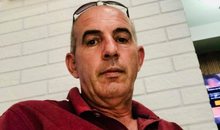
Murder in Tale, the author of the execution of Pjetër Kazaj is identified
2025-06-02 12:07:27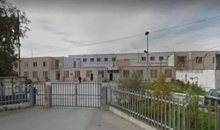
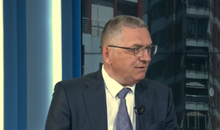
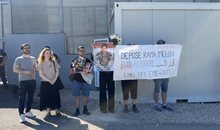
'Justice for Hamid': Activists protest against Gjadri camp
2025-06-02 11:41:26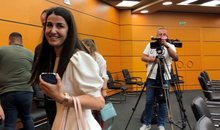
The draw is made, judge Elsa Ulliri will judge the "Partizani" case
2025-06-02 11:26:52